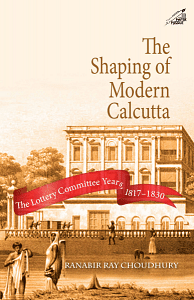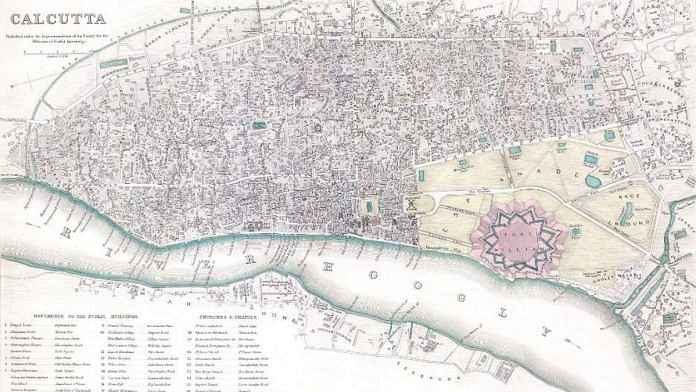Henry Wood’s February 1818 initiative to alter the system of cleaning drains in the town did not get very far although he was successful in drawing attention to the state of the town’s drainage which was in a shambles and needed immediate attention if the healthiness of the town was to be improved. The records indicate that, apart from specific projects, there was no further discussion on the subject, which was revisited in late April 1819 when Henry Shakespear, the Officiating Chief Magistrate of the town who had just been made a member of the Lottery Committee (26 March 1819), brought it up once more.
Shakespear suggested that the committee set aside funds for cleaning the existing drains before the commencement of the rains. The Chief Magistrate was a hands-on man who knew the inner workings of the magistracy, especially whether it would be able to meet the demands of policy implementation which the Lottery Committee was bound to impose upon it. He said that he was induced to make the proposal ‘from a conviction of the inadequacy of the establishment under the magistracy for the purposes required, so long as the drains in the town remain in their present state’. The existing establishment would possibly be sufficient
…when a general cleaning has taken place, but the drains in the interior of the town are choked up with dirt and rubbish, the accumulation of years since Calcutta has been a town, and four times the conservancy establishment would not serve to clear them in the next two months.
The impact of the existing drainage situation on the health of the people of the town was nothing short of disastrous. Shakespear explained that, in the absence of a general cleaning,
…half the drains in Calcutta are worse than useless – water and filth, which would otherwise be carried off, remains stagnant, and hence proceeds no doubt much of that sickness which prevails amongst all classes, but particularly amongst the lower order of people, towards the close of the rains, and which has occasioned such a dreadful mortality in the last few years.
Also read: How car racing took off in Calcutta — with Maharajas, makeshift airfield, and Alfa from Italy
He argued that since the Lottery Committee’s goal was to improve ‘the health and comfort’ of the inhabitants, the lottery funds could be used to clean the drains. In fact, the construction of new drains had already contributed towards that end, and here Shakespear took the opportunity to focus on the integrated nature of the drainage system as a whole, making the point that either the entire network functioned efficiently or nothing worked at all. He said that it would be ‘superfluous to show that those improvements (the construction of new drains) are deprived of half their utility unless the whole of the drains connected with the new ones are rendered efficient’. He suggested that each member of the committee take charge of the cleaning ‘of those parts which cannot conveniently be looked after by others’.
Though he could not be faulted on his argument, Shakespear too failed in his effort to bend the guidelines. Perhaps, other members of the committee thought the same way too, but the rules were sacrosanct and the committee maintained blandly that the suggestions could not ‘be complied with consistently with the orders under which the application of the lottery funds is limited to new works’. The Officiating Chief Magistrate was, however, nothing if not tenacious. Towards the end of the year, he made another effort to improve the drainage facilities of the town.
The cold weather was just setting in and Shakespear wrote in early November 1819 that he wished to bring up the subject ‘in the hope that the present season may not be allowed to pass away without something being done towards improving the state of the drains in the interior of the town’. He said that ‘the magnitude of the labour and expence of new-draining (sic) Calcutta seems to have…prevented the work from being commenced upon’ and no steps had been taken ‘to correct the present defects because the whole cannot be undertaken at once upon a grand systematic plan’. He, however, felt that the problem could be tackled piecemeal in that ‘many bad drains’ could be got rid of and improved ‘at no great expence (and) without interfering with any general system of draining which may be adopted hereafter with reference to the levels of the town should the state of our funds ever enable us to commence such an undertaking’.
Shakespear’s specific proposal was that the drains of all roads running north and south should be filled up ‘and surface-drained to empty themselves into the deep drains running east or west to the salt water lake or the river’. As a pilot project, he suggested that all the roads ‘connecting Cotton Street and Burtollah’ be taken up ‘where several of these crossroads are to be found’.
Also read: ‘Baboo’s feelings hurt’?— How precursor to SBI treated Indian customers in British era
Taking note of the proposal, the Lottery Committee set up a ‘subcommittee for surface-draining’ comprising Shakespear and Lt Charles Paton, the latter being asked to attend all committee meetings as an honorary member in the absence of his senior, Captain P. Phipps, who was on his annual tours for the inspection of buildings in the Lower Provinces. The subcommittee was to carry into effect an ‘experiment’ of the sort proposed by Shakespear, who was given a free hand in selecting any part of the town ‘as may appear most expedient to you and Lieut Paton’. An expenditure of Rs 400 was allowed for the experiment, the committee asking Shakespear to report to it on the ‘practical advantages which may be found to result from the adoption of your proposition’.
In April 1820 the subcommittee declared that its experiment, costing Rs 370-2-7, had been successful the proposal being made to extend the surface-draining project to a new stretch of Chitpur Road which would, among other things, be widened. The proposal was accepted and a further Rs 400 allocated for the additional work. Even though the Court of Directors was not happy with Shakespear’s ‘experiment’, there is little doubt that it constituted a big step forward in making roads cleaner, if for no other reason than the fact that it began implementation of the principle of effective draining of the city from the west to the east generally.
 This excerpt from ‘The Shaping of Modern Calcutta’ by Ranabir Ray Choudhury has been published with permission from Niyogi Books.
This excerpt from ‘The Shaping of Modern Calcutta’ by Ranabir Ray Choudhury has been published with permission from Niyogi Books.



